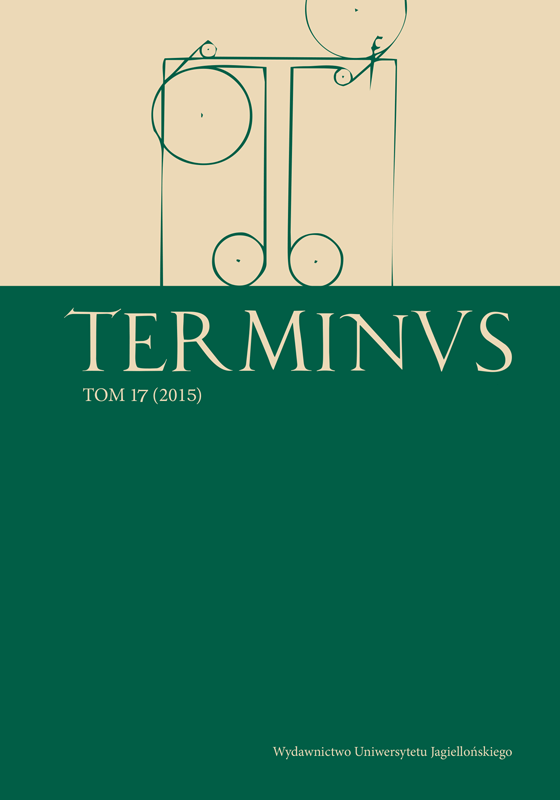Fertilis in mortes: Lucan’s Medusa and Milton’s Sin
Fertilis in mortes: Lucan’s Medusa and Milton’s Sin
Author(s): Joanna PypłaczSubject(s): Poetry, Other Language Literature, Theory of Literature
Published by: Wydawnictwo Uniwersytetu Jagiellońskiego
Keywords: Lucan; Milton; Spenser; Pharsalia; Paradise Lost; The Faerie Queene; Sin; Medusa; Error; fertility; death; serpent;
Summary/Abstract: This article attempts to show whether, and if so, to what extent, John Milton’s portrayal of Sin in Paradise Lost is underlain by Lucan’s so-called “Medusa excursus”. Scholars have shown beyond reasonable doubt that Milton’s depiction of Sin alludes to one particular English hypotext, namely Edmund Spenser’s Faerie Queene. However, although the Lucanian character of Milton’s epic is now generally acknowledged, the “Medusa excursus” has, to date, not been considered to be a possible Latin hypotext for Milton’s depiction of Sin. Leaving aside the indisputable similarities between Spenser’s Error and Milton’s Sin, the author shows that for all their apparent differences, Sin and Medusa actually have much more in common than it would seem at first glance. Firstly, both monsters are allegories of some primeval evil that, having set in motion a never ending process of destruction, is portrayed as being a deadly, oxymoronic fertility that brings forth death instead of life. Th e morbid procreative prolificacy of both Medusa and Sin is triggered by a crime, which, once it has violated their bodies, renders them eternally “fertile in death”. While Medusa, having been mutilated by Perseus, posthumously “gives birth” to poisonous snakes, Sin, violated by Satan, literally becomes the mother of Death. Although it is highly likely that the motif of monstrous fertility has itself been taken directly from Spenser, it would seem that Milton may also have been inspired by Lucan. Th e name of Cerberus, which is present in Milton and Lucan, but absent in Spenser, is a telling detail. Milton’s depiction of Death, which is described as being shapeless and similar to a substance, brings to mind Medusa’s poisonous blood. The subsequent rape of Sin by Death results in the birth of a pack of infernal dogs. This element also follows the Lucanian pattern of a crime triggering a deadly procreation by a wronged party.
Journal: TERMINUS
- Issue Year: 17/2015
- Issue No: 4 (37)
- Page Range: 417-444
- Page Count: 27
- Language: English

